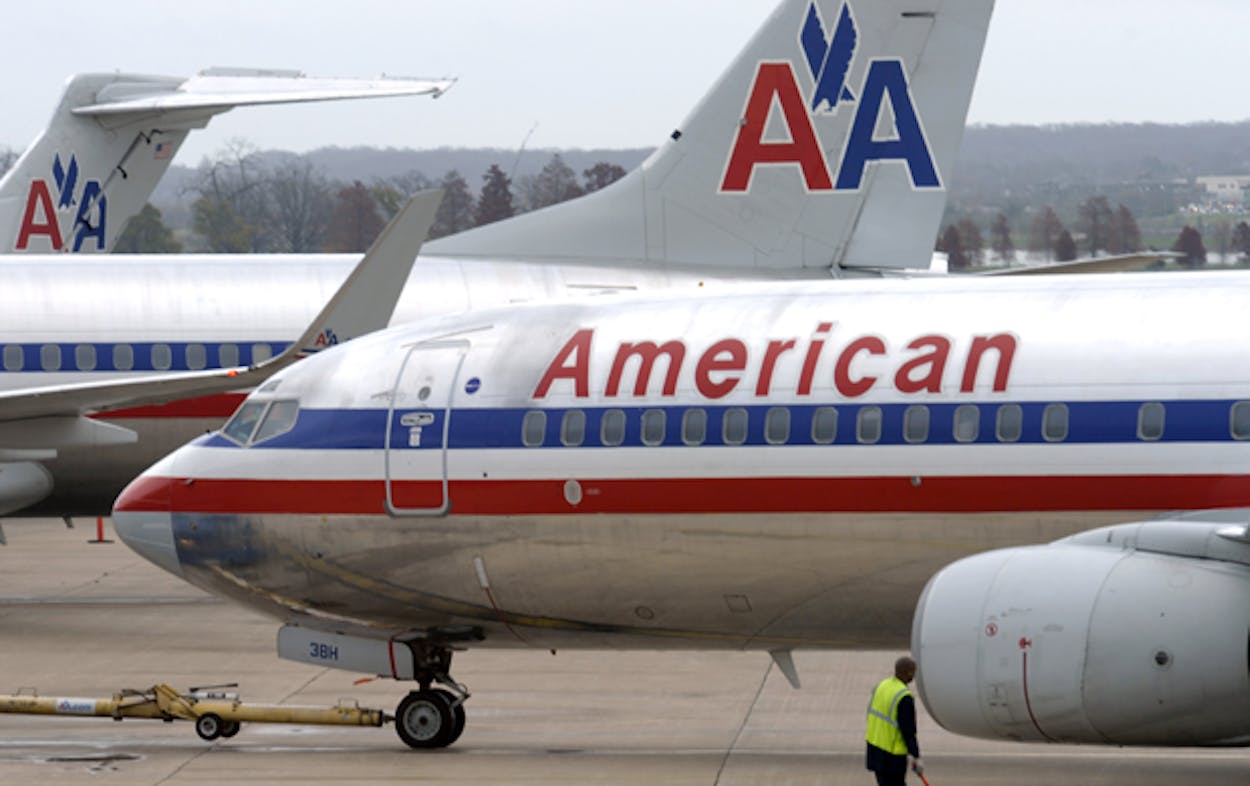In January 1990, Jacques Vroom spent $356,000 on an AAirpass from American Airlines, a “golden ticket” that allowed him unlimited, first class travel on the airline. Vroom, a Dallas resident, subsequently accrued more than 37 million (!) frequent flier miles in his trips around the globe. (That would be more than 3,890 roundtrip flights from DFW to London-Heathrow, a steal at $91 a pop.)
But an ailing American Airlines realized heavy users of the passes, including Vroom, were costing the airline millions in revenue a year, and now, the company wants the passes back, according to Ken Bensinger’s 2,300-word Los Angeles Times story, “The frequent fliers who flew too much.”
In 1981, American Airlines began selling unlimited AAirpasses. Over the life of the program, the company sold 65 unlimited AAirpasses to people including Michael Dell and Willie Mays. (The company last offered one for sale in the pages of the Neiman Marcus Christmas catalog in 2004 for a cool $3 million.)
Bensinger described this elite group of travelers, writing:
There are frequent fliers, and then there are people like Steven Rothstein and Jacques Vroom.
Both men bought tickets that gave them unlimited first-class travel for life on American Airlines. It was almost like owning a fleet of private jets.
Passes in hand, Rothstein and Vroom flew for business. They flew for pleasure. They flew just because they liked being on planes. They bypassed long lines, booked backup itineraries in case the weather turned, and never worried about cancellation fees. Flight crews memorized their names and favorite meals. …
In the 2009 film “Up in the Air,” the loyal American business traveler played by George Clooney was showered with attention after attaining 10 million frequent flier miles.
Rothstein and Vroom were not impressed.
“I can’t even remember when I cracked 10 million,” said Vroom, 67, a big, amiable Texan, who at last count had logged nearly four times as many. Rothstein, 61, has notched more than 30 million miles.
In light of its recent financial problems, American Airlines began a cost-cutting crackdown. As the airline began sniffing around for superfluous costs it could cut, it turned its money-seeking spotlight toward these globetrotting AAirpass holders, assigning an “revenue integrity unit” to investigate them. The team, which was “charged with rooting out passengers, travel agents and others suspected of cheating the airline,” found that Rothstein and Vroom were costing American more than $1 million per year. The company yanked Rothstein’s pass in 2008, prompting him to sue the company. In 2008, American Airlines sued Vroom, claiming he was accepting cash for his companion passes, and Vroom countersued.
Both cases are now in “legal limbo” because American Airlines is in bankruptcy proceedings, Ken Bensinger told NPR’s Audie Cornish on Monday’s “All Things Considered:”
The bankruptcy actually threw a monkey wrench into the plans of the lawyers because, typically, in bankruptcies, as was the case here, it freezes most of these lawsuits and that’s what happened. Both lawsuits pending involving Vroom and Rothstein are now in legal limbo. The Rothstein case seemed to be leaning in American’s favor, but the Vroom case seemed to be leading in his favor and now both are stuck. And their attorneys say they don’t have the highest hopes that these are going to get resolved any time soon.
There’s also kind of a nuclear option for American in bankruptcy, which is they could be able to convince the judge that they should be able to cancel all the air passes.
No word about what Vroom is doing about his carbon footprint. Assuming Vroom flew two million miles a year for eighteen years, his carbon footprint would be some 720 metric tons of carbon dioxide a year, some 36 times the average North American’s yearly output.







